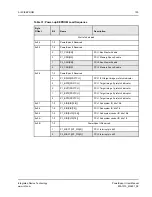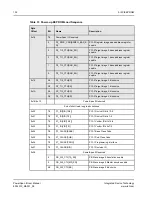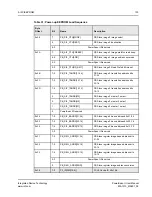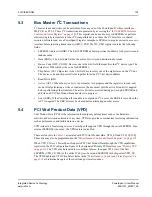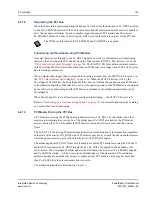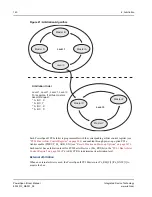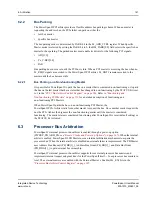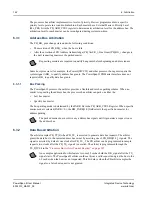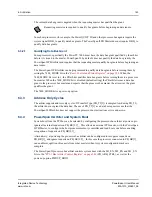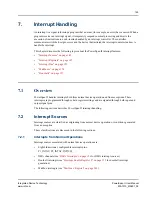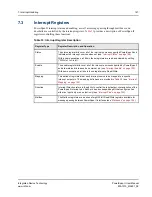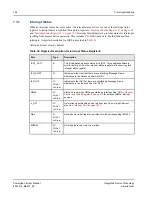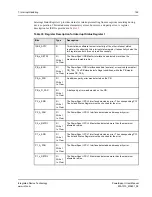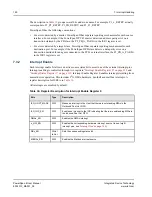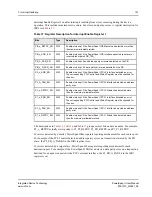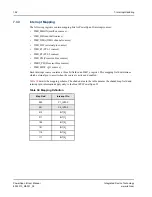
137
PowerSpan II User Manual
80A1010_MA001_09
Integrated Device Technology
www.idt.com
6. Arbitration
Arbitration is a process used by multi-drop bus protocols, such as PCI, to support read and write access
on a peripheral bus. A bus arbiter is a logic module that controls access to the bus by the devices
residing on it. For example, when a device requires access to the bus it sends a request signal to the bus
arbiter. If the bus is not active, the arbiter grants the device access; otherwise, the device must continue
to request access until it is successful in obtaining the bus.
This chapter discusses the following topics about PowerSpan II’s Processor Bus and PCI arbitration
capabilities:
•
“PCI Interface Arbitration” on page 137
•
“Processor Bus Arbitration” on page 141
6.1
Overview
PowerSpan II has three arbiters. There is an arbiter on each PCI interface: PCI-1 and
PCI-2. There is also one arbiter for the Processor Bus Interface.
6.2
PCI Interface Arbitration
Each PowerSpan II PCI Interface supports a PCI central arbiter. Each arbiter has dedicated support for
the PowerSpan II PCI Master
—
with internal request and grant signaling and up to four external PCI
masters.
PowerSpan II provides external pins to support three additional external PCI masters
—
PCI_REQ[7:5]#/PCI_GNT[7:5]#. Pairs of these additional arbitration pins can be individually
assigned to the PCI-1 arbiter or the PCI-2 arbiter (see
). Assignment of these pins is
accomplished by initializing the PCI Arbiter Master (PCI_Mx) bits and PCI Arbiter Pins Configuration
(PCI_ARB_CFG) bit in the
“Miscellaneous Control and Status Register” on page 318
. These bits can
be configured either through EEPROM load at reset (see
) or direct
PowerSpan II register access. Requests on PCI_REQ#[7:5] are ignored until these bits are initialized.
Signals PCI_REQ[7:5]# / PCI_GNT[7:5]# operate at a maximum of 33 MHz.







